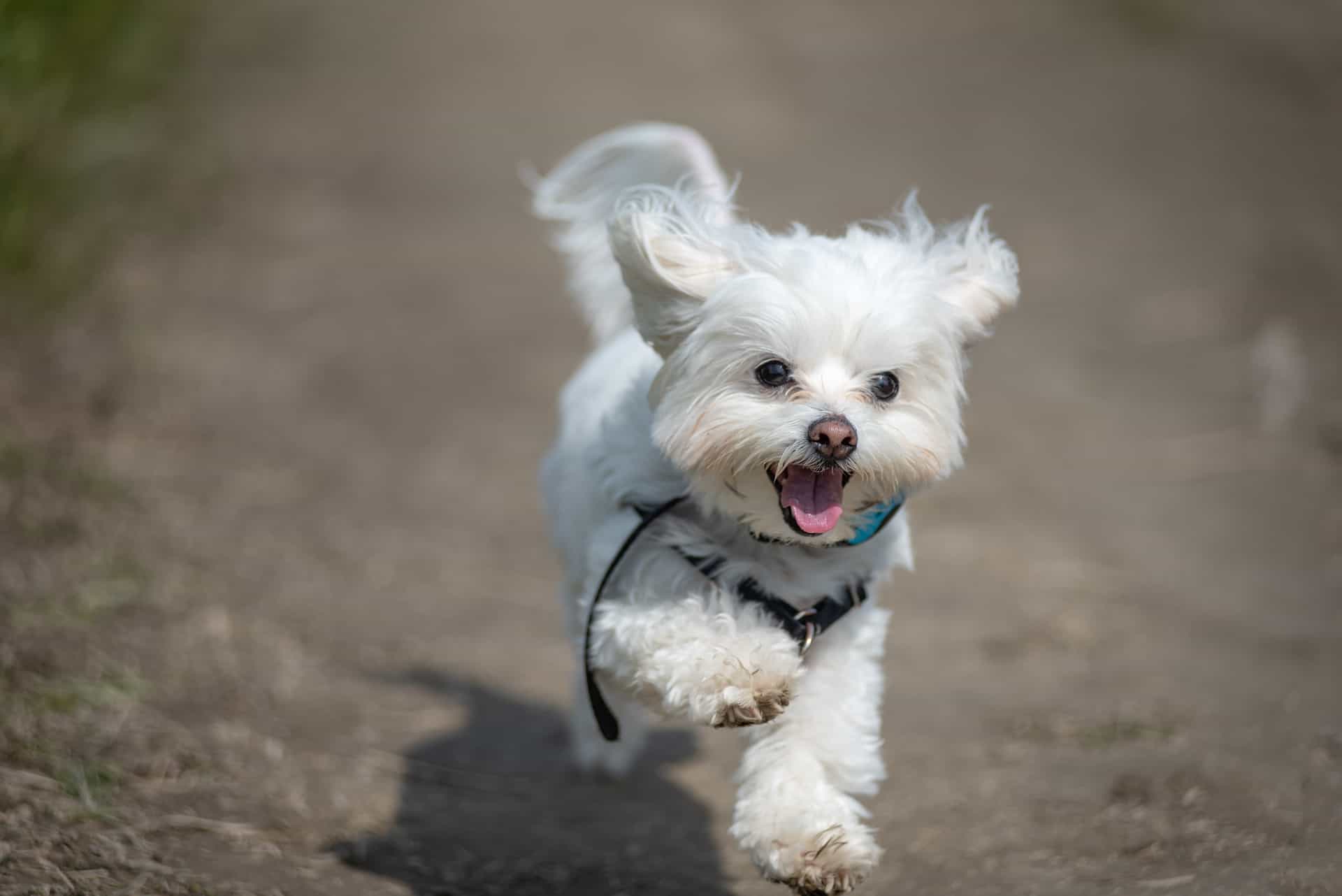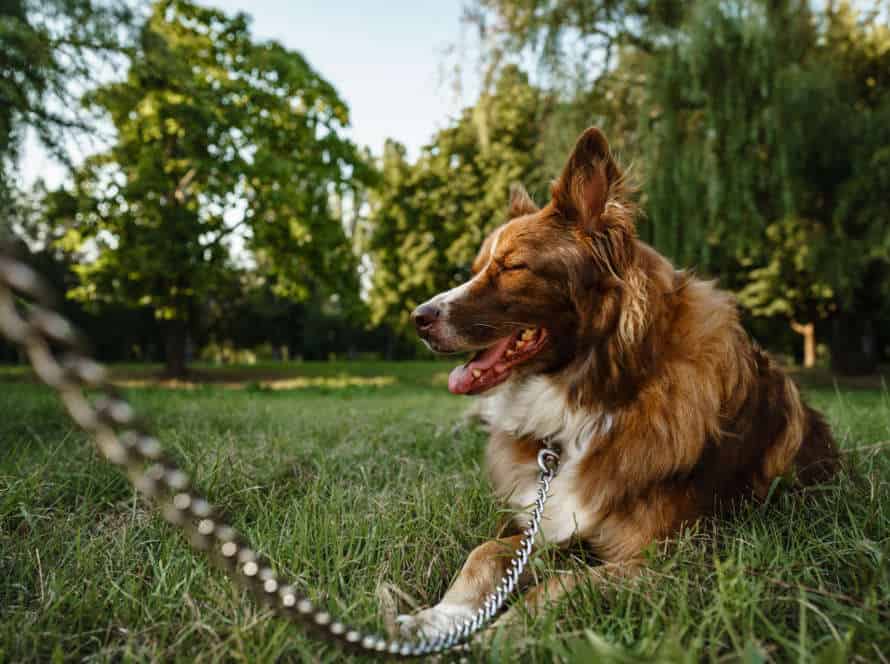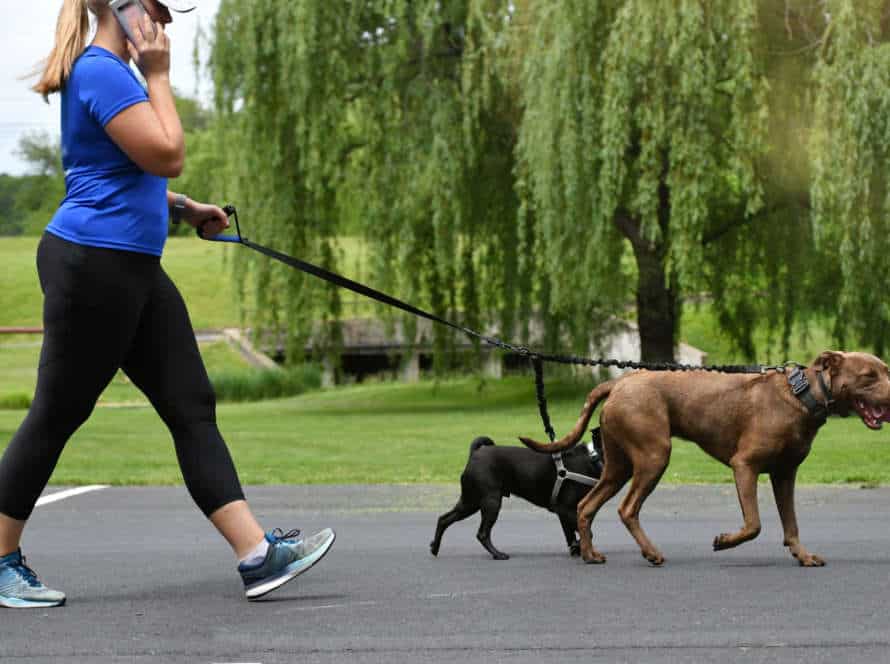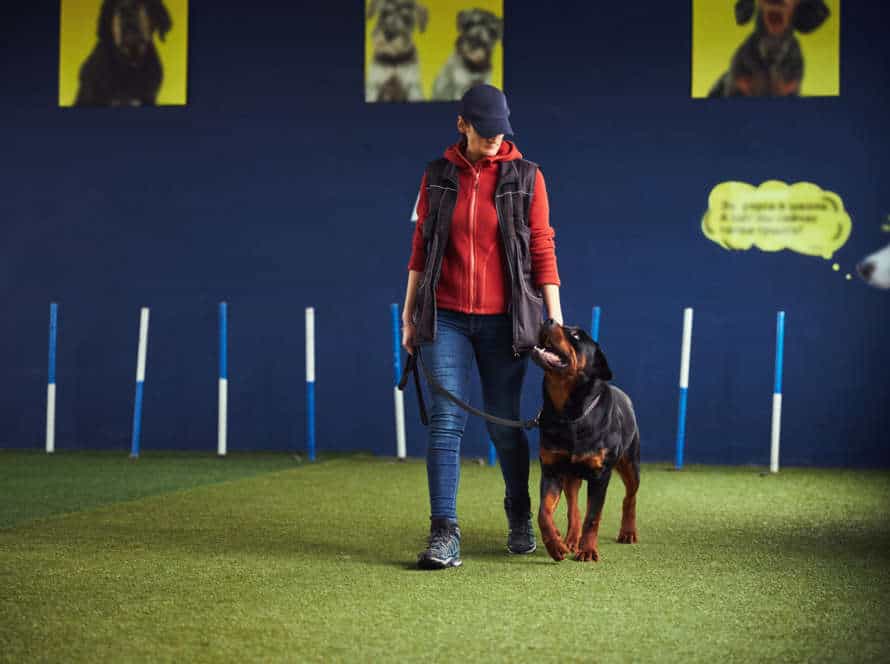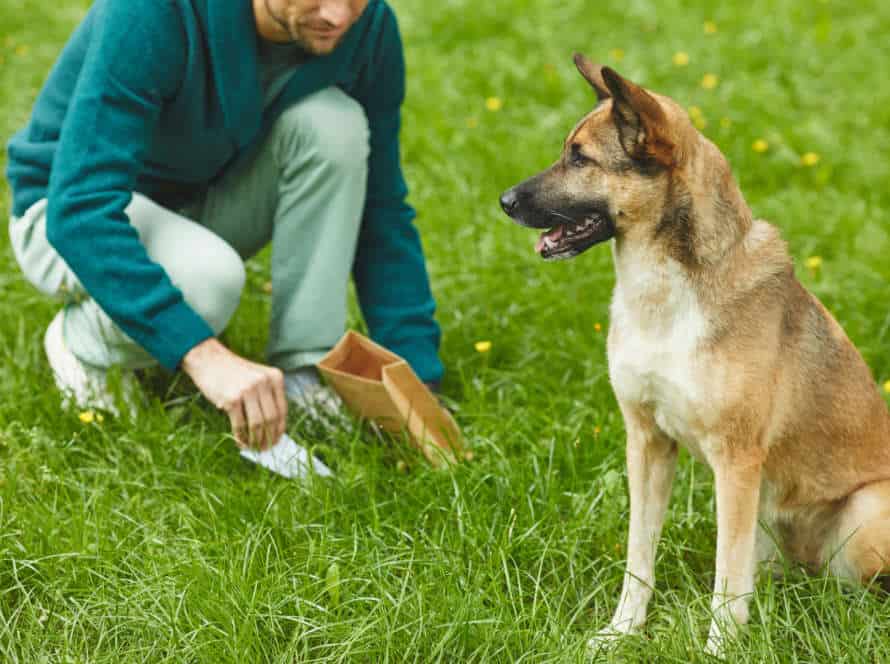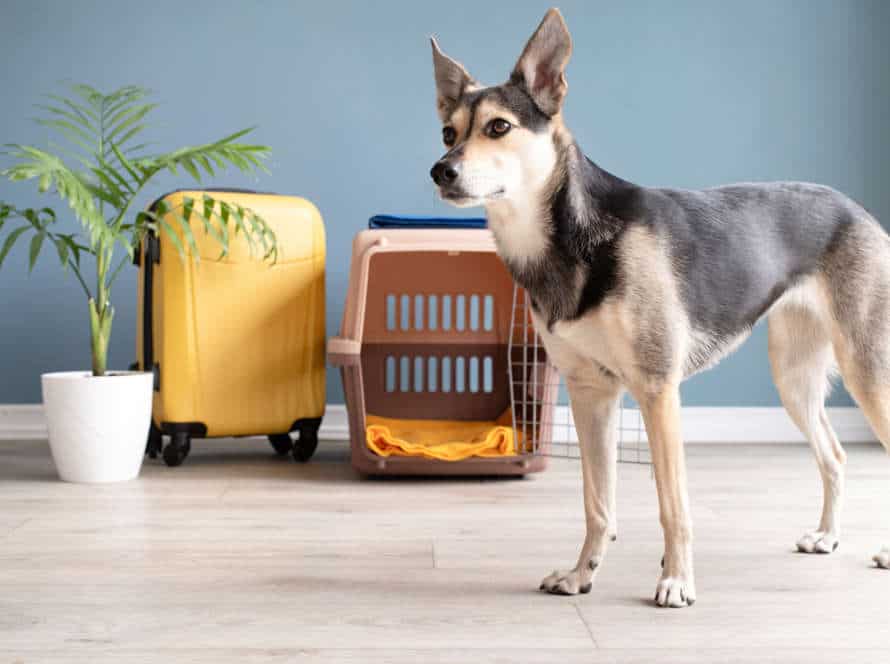Tips for Reinforcing Your Dog’s Recall in Different Situations
Reinforcing your pup’s recall in various scenarios is a must for his wellbeing and fun when off-leash. Here are some ideas to help you:
- Begin in a low-distraction environment, then up the distraction level as your dog improves.
- Reward and praise with yummy treats when he comes running.
- Use a whistle or unique sound to get his attention from a distance.
- Train recall when he’s playing or sniffing.
- Use a long training lead for more freedom with safety.
Remember that reinforcing recall takes patience and time. With regular training, you can ensure your dog will return in any situation.
The Importance of Recall Training
Recall training is a must for your pup’s safety. Start during puppyhood and stay consistent! Familiarize your pup with recall in various environments and distractions.
This article provides tips for reinforcing your dog’s recall. Different environments? Different distractions? Don’t worry, we’ve got you covered!
What is Recall Training?
Recall training is teaching your pup to come when you call. It’s critical for keeping your fur baby safe and giving them more freedom during playtime.
The advantages of recall training are immense! First, it stops your pup from running into traffic, other animals, or risky scenarios. Second, it allows your pup to wander and have fun off-leash.
Here are some tips for reinforcing your pup’s recall:
- Give high-value treats as rewards when they come back.
- Practice recall in different settings, with increased levels of distraction.
- Make coming back an enjoyable experience with a happy voice and lots of praise.
- Don’t punish your pup if they don’t come back, as this won’t help.
Pro Tip: Doing regular recall training can upgrade your pup’s life and deepen your bond with them.
Why is Recall Training Important?
Recall training is important for dogs. It teaches them to return to their owner when called, and keeps them safe. Here are tips for reinforcing recall:
- Start early.
- Use positive reinforcement and rewards like treats and praise.
- Choose an environment with few distractions.
- Use distinctive cues.
- Practice often.
- Reward good behavior.
These tips build a stronger bond with your dog and reinforce recall skills. Pro Tip: Be patient and consistent with training, and use positive reinforcement.
When should you Start Recall Training?
Recall training is key for a dog’s training program. Start it early, even with puppies 8 weeks old.
This training has 2 main benefits. Keeps your dog safe, and can give them more off-leash freedom.
Keep training sessions fun and short. Use rewards they find valuable. Practice in different places. Increase difficulty over time. Make coming back to you a good experience.
Pro tip: Use positive reinforcement techniques. Never punish them for not coming back. This will make them less likely to respond in the future.
Techniques for Reinforcing Recall
It’s a must to teach your dog good recall skills. So, they’ll come when you call them in any environment or situation. This is how you can keep your pup safe and under control. For example, in the park, on a hike, or just on a walk around your block.
Here are some tips to reinforce recall in your dog:
- Start early: Begin training your pup as early as possible. The younger they are, the easier it is for them to learn and follow instructions.
- Use positive reinforcement: Reward your dog with lots of praise and their favorite treats when they come to you after hearing their name or recall command.
- Practice in different environments: Train your dog in multiple settings such as your backyard, the park, or during a hike, so they’ll get used to following your commands in different scenarios.
- Be consistent: Use the same recall command every time you practice with your dog, and make sure everyone in your household is on the same page.
- Use a long leash: Give your dog a long leash to practice recall, so you can still control them while they gradually move further away from you.
Use Positive Reinforcement Techniques
Positive reinforcement is a great way to get your pup to remember and respond better. Here are some tips for reinforcing recall:
- Offer treats your pup loves when they come to you. This reinforces their behavior and encourages them to respond again.
- Keep training sessions short and frequent. This makes it easier for your dog to remember the recall command.
- Be consistent with the same recall command all the time. Consistency is key here.
- Practice in different environments. This helps your pup feel comfortable and respond in any situation.
Follow these positive reinforcement techniques and watch your pup become a more obedient companion.
Train Your Dog to Respond to His Name
Teaching your canine friend to answer to his name is a must-have for good recall training. Here are some tips and tricks to reinforce recall and help your pup respond to his name in various circumstances:
- Begin indoors, in a tranquil and familiar area.
- Clearly say your dog’s name in a positive tone, then reward him when he looks at you.
- Practice in familiar places like your backyard or a nearby park to reinforce his reaction to his name in diverse scenarios.
- Offer high-value rewards like treats, playthings, or compliments to increase your pup’s eagerness and enthusiasm for obeying his name.
- Prevent using your dog’s name in an unfavourable context, like scolding or disciplining, as this can damage his relationship with his name.
By using these recall training techniques and advice, you can get your dog to reliably respond to his name in various conditions, both inside and out.
Pro tip: Remember to be cheerful and patient during training, and make it a fun and rewarding experience for your furry buddy.
Incorporate Distractions into Your Training
Incorporating distractions in training your pup? That’s helpful to reinforce recall, especially in different situations.
Here’s some tips!
- Start in a low-distraction environment, like the backyard.
- Gradually increase the level of distraction. Introduce toys, treats and other people or dogs.
- Practice the command in various places – park, beach, sidewalk.
- Use positive reinforcement – treats or praise – each time your pup responds.
- Maintain a confident and calm demeanor. Sense and react to your energy.
- Be patient and consistent. Reward progress.
Keeping Your Dog Safe
As a responsible pup-parent, teaching your dog proper recall is a must! Keeping your canine companion safe by having them recall to you is the key to a content and obedient pup. Here are some tips to help reinforce that recall in different scenarios and keep them safe.
Train Your Dog to Come When Called in Emergency Situations
Training your pup to come when called in an emergency is vital for their safety. To reinforce their recall, here are some handy tips:
- Begin with basic recall training in a peaceful, distraction-free area.
- Step-by-step, up the distraction level by moving to outdoor spots with more stimuli to keep your pup focused.
- Use yummy treats, praise and positive reinforcement to motivate your dog to come to you when called.
- Exercise recall training in diverse scenarios, such as when playing, strolling, or at mealtime.
- Make recall training part of your emergency plan, so your pup knows what to do if a crisis arises.
Always stay calm, and never scold or punish your dog when they don’t come right away. Positive reinforcement is key to creating a solid recall bond with your furry buddy.
Know Your Dog’s Limits
It’s key to know your dog’s physical and behavioral limits. Here’s how:
- Different breeds have distinct abilities & limits. Look out for signs of exhaustion/pain when exercising. Give them breaks, water & shade when outside.
- Some dogs can be easily distracted or nervous around other dogs or with crowds. Practice in low-stress areas before more challenging ones.
- Train using positive reinforcement, not punishment/scolding. This helps them obey.
- Use tools to reinforce recall, like a long leash or a specific word/sound. Step up distractions & challenges as they become confident.
Remember, safety & well-being are the #1 priority. Knowing limits & reinforcing recall will help your furry pal lead a happy, healthy life.
Keep Your Dog on a Leash in Unfamiliar Situations
Keeping your pup on a leash in new places is a wise move. Here are some tips to boost their recall:
- Start training in a secure, familiar area where they focus.
- Use verbal and physical cues to reward good behavior, such as sitting or staying.
- Introduce them to low-stress areas, like a calmer park or beach. Keep rewarding positive behavior.
- Stick to a routine and increase difficulty with more novel, exciting spots.
- Keep the leash on in new places. Be safe!
Patience, consistency, and lots of praise go a long way to keeping your doggo safe and well-behaved.
Advanced Recall Training
Teaching a dog to come reliably is a must for all canine owners! If your pup has got the hang of it in simple scenarios, then you can attempt more complicated ones. We’ll look at various tactics to strengthen the ‘come’ command, so your pup will always come back to you, no matter what’s going on!
Train Your Dog to Come When Called at a Distance
Advanced recall training and reinforcement of the learned behavior in different situations is needed to train your dog to come when called from a distance. Here are some tips to help you out:
- Start with basic recall training.
- Gradually add distance.
- Use high-value treats as rewards.
- Practice in various locations with distractions.
- Encourage and reward desired behaviour with positive reinforcement.
- No punishment if they don’t come. Use a leash or fence instead.
- Be consistent and patient in training. Make it fun and rewarding for them too!
Train Your Dog to Come When Called in Public Places
Training your pooch to come when called is essential to keep them safe and avoid any harm in public areas. You can use advanced recall training to reinforce the command in diverse circumstances. Here are some tips to help you:
- Start at home with basic obedience training for better communication.
- Attach a long leash and train in less crowded areas, gradually increasing the level of difficulty.
- High-value treats and positive reinforcement will reward them for coming.
- Practice recall in various situations, like playing with other dogs or being distracted by food or toys.
- Make sure everyone who interacts with them knows and uses the recall command.
- And never punish your pup for not responding!
Pro tip: Doing recall practices regularly strengthens the bond and makes your pet obedient to your orders.
Train Your Dog to Come When Called When Playing with Other Dogs
Train your dog to come when you call them while playing with other pooches. It’s super important for keeping control and making sure they’re safe. Advanced recall training needs patience, practice, and a plan. Here are some tips to do just that:
- Start basic recall training in a space you can control, like your home or garden.
- Build their confidence around other dogs by introducing them slowly and carefully.
- Use treats to reward them when they come when called.
- Practice recall training on a long lead so they have freedom, but you still have control.
- Gradually add more distractions while they train, like adding more dogs, or going somewhere busier.
- Use the same command each time, like “come” or their name.
- Praise and reward them as soon as they respond.
Consistency and positive reinforcement are key for reinforcing your dog’s recall when playing with others.
Troubleshooting Common Issues
Teaching your pup great recall is essential. Many pet owners battle recall problems in different places. For instance, when there are distractions or when your pup is off-leash. Here are some tips to help with common recall issues in various scenarios.
My Dog Only Comes When He Wants To
“My dog only comes when he wants to” is a common problem for dog owners. Here are some tips to help:
- Train basic commands – Sit, stay and come.
- Use positive reinforcement – Treats, praises, and playtime when they come.
- Practice often – Set a routine and try in different settings.
- Avoid negative reinforcement – Never punish if they don’t come.
- Use a long leash or fence – These help in new environments.
Pro Tip: Start training early to have a great bond and better recall.
My Dog is Afraid to Come When Called
Troubleshoot common issues if your pooch is scared to respond when you call them. Follow these tips for success:
- Begin training in a stress-free, low-distraction place. Then, add more distractions gradually.
- Give high-value treats as rewards for coming when called.
- Don’t use your doggo’s name when you’re scolding.
- Don’t chase or punish them if they don’t come when called.
- Practice recalls in different settings: parks, walks, etc.
By following these tips, your pup will have confidence and respond better when you call them.
My Dog is Too Distracted to Respond to His Name
Is your pup too distracted to respond to their name? Here are some tips to reinforce their recall:
- Link their name to positive experiences, like treats and praise.
- Use the same tone when saying their name, and avoid using it in negative contexts.
- Start training in a quiet environment, then increase distractions & complexity.
- Use yummy treats & rewards to encourage them to come when called.
- In outdoor or unfamiliar areas, use a long leash or rope to help.
- With enough patience & consistency, they can respond to their name – even amid distractions. Pro tip: Keep training sessions short & positive to prevent frustration or losing focus.
Consistency is Key
Consistency is essential when training recall for your pup. The same approach is needed each time – the words, the tone of voice, the techniques. This will help them understand what is expected. If you remain consistent, your dog will learn faster.
The Benefits of Consistency in Recall Training
Consistency is key for teaching your pup obedience in various settings and scenarios. If you stay consistent with training and commands, your dog will understand better and respond to you more easily. Here are some great benefits of keeping up with consistency:
- Top-notch reliability: Regular practice and same methods lead to a pup that will obey your command, no matter what the circumstance or distraction.
- Super focus: Your pup will learn what’s expected of them quicker and be better at focusing during training.
- Faster progress: Consistency helps your pup recognize patterns, leading to speedy and successful learning.
- Increased Bonding: Doing things the same way helps build trust between dog and owner, strengthening the bond.
It takes work, but keeping up with recall training will give your pup improved behavior and increased responsiveness. So, remember: Stay patient and consistent with your training, and your pup can become a better-behaved companion.
Developing a Consistent Training Routine
To build a consistent training routine for recall, here are some tips:
- Stick to a regular schedule – pick a time and place to train your pup each day. Use the same commands too!
- Keep it brief – 15-20 minutes max. Short, regular sessions are better than irregular, long ones.
- Vary the locations – train your pup indoors and outdoors.
- Reward good behavior – use positive reinforcement with treats, praise, or playtime.
- Practice regularly – make it part of your daily routine.
By following these tips, you can get an obedient pup!
Sticking to Your Training Plan
It’s a must to stay consistent with your pup’s recall training plan. Here are some hints to keep the consistency:
- Set up a daily routine that includes short sessions to back up recall training.
- Every person interacting with the dog should follow the same plan for consistency.
- Use treats or toys as rewards for the recall behavior during exercises.
- Practice recall in different places, like on walks or in the park, to make it part of their daily life.
- If the pup is not responding, go back and practice basic training before attempting advanced ones.
Keep in mind, consistency is vital for successful dog training. Regularly giving positive reinforcement can bring long-term success.
Bonus tip: Training your pup is about more than what commands they learn; it’s also about forming a strong bond. So, make sure to enjoy the process and include playtime for a good training experience.
Frequently Asked Questions
1. How do I reinforce my dog’s recall in different situations?
To reinforce your dog’s recall, you should practice in different environments and gradually increase the distractions. Use high-value rewards to motivate your dog, and always use positive reinforcement techniques such as treats and praise.
2. Why is it important to reinforce your dog’s recall?
Reinforcing your dog’s recall is crucial for their safety and obedience. A reliable recall will help prevent your dog from running away, getting into dangerous situations, or refusing to listen to commands.
3. Can I use punishment to reinforce my dog’s recall?
No, punishment should never be used to reinforce your dog’s recall or any other behavior. Punishment can cause fear and anxiety in your dog, which can lead to further behavioral problems and a breakdown in your relationship.
4. What are some common mistakes to avoid when reinforcing your dog’s recall?
Some common mistakes to avoid include only practicing recall in one environment, using the recall command too much or too little, and failing to offer high-value rewards. Additionally, it’s important not to punish your dog for not coming when called.
5. Can I reinforce my dog’s recall without treats?
Yes, while treats are often the most effective method for reinforcing your dog’s recall, you can also use toys, games, and other rewards that your dog enjoys. The key is to find a reward that is highly motivating for your dog.
6. How long does it take to reinforce your dog’s recall?
The time it takes to reinforce your dog’s recall will depend on their age, temperament, and previous training. Some dogs may pick up on the training quickly, while others may require more time and patience. Consistency and positive reinforcement will be key factors in getting the desired results.

